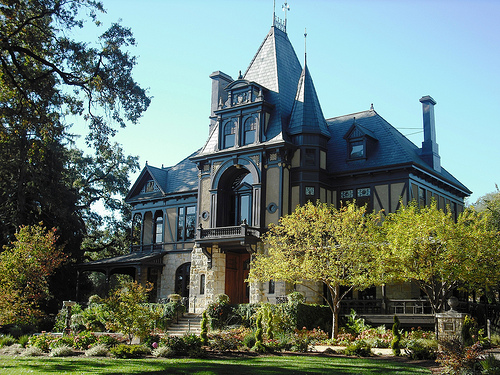ST. HELENA — Short-term rentals that have flown under the radar for years soon will be able to operate legally, with the St. Helena City Council voting 4-1 this week to approve new regulations allowing city staff to issue up to 25 vacation rental permits.
The permits will be available on a first-come, first-served basis, but they won’t be available right away. The council will have to formally adopt the new ordinance at its April 10 meeting, followed by a 30-day period before it takes effect. City staff will announce when permit applications will be accepted.
The city started looking at the issue last year, after operators of legal bed-and-breakfasts complained that illegal operations were doing business without paying applicable taxes. Given the choice of cracking down on vacation rentals or strictly regulating them, the council chose the latter option.
“We’ve had this problem in our city for a long time, and this is a very good ordinance to address that problem and also raise more revenue for our city,” said Councilmember Peter White.
Councilmember Catarina Sanchez cast the sole dissenting vote. She said the regulations would take 25 units out of the city’s housing stock, drive up housing prices, and “affect the culture of our community” by allowing commercial enterprise in residential neighborhoods.
That last concern was echoed by Diane Dillon, a member of the Napa County Board of Supervisors who said she was speaking as a St. Helena citizen, not a supervisor.
“I’m concerned that this is a significant change for the city of St. Helena to allow more commercial uses in residential areas,” Dillon said. “That’s a little bit of a sea change there, and I have concerns that the residents of St. Helena might not really understand the full impacts of this.”
Dillon also brought to the city’s attention that only operations offering four rooms or more are subject to the countywide 2-percent assessment for the Tourism Improvement District, so the ordinance can’t force vacation rentals to pay that assessment. The city changed the ordinance so it only requires vacation rentals to pay the 12-percent Transient Occupancy Tax.
City councilmembers said they’ll revisit the ordinance in a year to see how it’s working. Applicants who obtain a permit during the first year will have to abide by any changes the council deems necessary after their review.
The Planning Commission spent hours mulling the details of the ordinance. The council kept some of the commission’s recommendations, but made a few changes.
One change involved how neighbors are involved in the initial application process. The Planning Commission recommended that applicants should get the written approval of 70 percent of their neighbors — anything lower than that threshold would trigger a hearing before the commission.
But the council decided to go with their original scheme: a Planning Commission hearing will only be required if 30 percent of neighbors object to the application.
Applicants will also have to give neighbors contact information for someone who can respond to complaints within 30 minutes.
About Karen Magliocco

